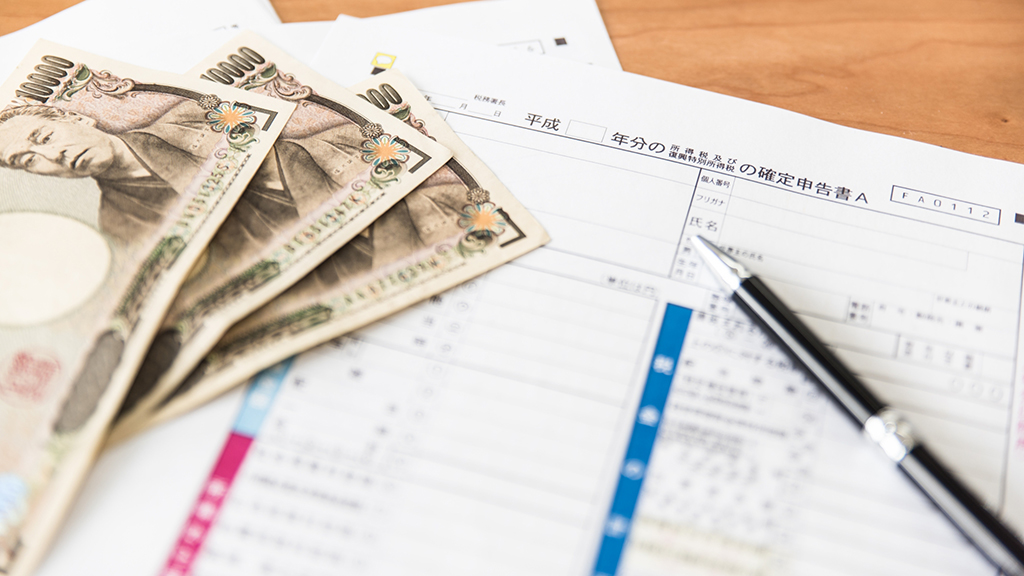What if your final tax return is overdue? Know the Two Fines

This post is also available in 日本語
We showed you previously the “Procedure for Income Tax Return for people working in Japan” The Income Tax Return is a procedure to calculate the amount of income tax you owe on the wages.
When you are required to file a tax return, you have to submit it between February 16th and March 15th of the following year. When you fail to meet the deadline date, you may be faced with a penalty. This time, we explain to you the kind of penalty payment imposed on delayed filing.
Contents
Two kinds of penalty payments
There are two kinds of penalty tax payment for the delayed filing: “Additional Tax” and “Tax in Arrears.”
- Additional Tax
This is a penalty incurred when you fail to file the income tax return in time or you miscalculate the tax amount. - Delinquent Tax
This is a penalty imposed on when you fail to pay tax in time.
Missing the deadline date for filing and tax payment will be subject to both Additional Tax and Tax in Arrears. When the filing is made in time, but the tax payment is delayed, only the Tax in Arrears is incurred.
The Additional Tax
There are three types of the additional tax depending on the sort of errors.
- Additional tax for failure to file
This is a penalty for not filing in time. For an example, when the tax payment is under 500,000 yen, additional 15% of the amount must be paid. However, when the filing is made before being pointed out by the tax office, the addition tax payment will be lowered to 5%. - Additional tax for understatement
This is a penalty for filing less tax due than the correct amount. For an example, when the additional tax due is to be less than the amount initially filed or 500,000 yen, the additional payment is to be 10% of that amount. However, in case when the revised filing is made voluntarily before being pointed out by the tax office, no additional tax is imposed upon. - Additional tax for fraud case
This is a penalty for concealing money or deliberately not filing for the purpose of tax evasion. The penalty in these cases are severe and the fine will be 35% (for failure to file, 40%) of the correct tax amount.
Delinquent Tax
The amount of the tax in arrears varies because it is calculated based upon the days elapsed from the deadline date to the actual payment date. Therefore, the amount increases daily as you delay the payment. And should you continue to keep the tax due unpaid, an officer from the tax office may visit your home or your property may be seized. Hence, please be mindful of the tax payment.
No need to pay any fine if you have no tax to be paid
When the income is minimal or the business is losing money, no income tax may be incurred. In this case, there is no need to pay any additional tax nor any tax in arrears.
Extension of tax filing deadline and grace period for tax payment due to the influence of the novel coronavirus disease (COVID-19)
The deadline of tax return filing in the first year of Reiwa was March 15, 2020. However, it was extended to April 16, 2020, due to influence of the novel coronavirus disease. Also, when you have difficulty in filing under the ‘stay home’ request, further extension may be granted individually even after April 17, 2020.
For people who are running business, if the revenue has declined compared to the last year and it is difficult to make a tax payment, delayed payment may be allowed. In this case, there will be no tax in arrear during that period.
First of all, please call and consult with the Regional Taxation Bureau Grace Support Center.
https://www.nta.go.jp/english/tax_payment/02.htm
Check with your local tax office for any question
The tax return must be filed at a local tax office of your resident. When you are not certain of the procedure, the tax payment method or other issues regarding tax, please seek for guidance from your local tax office, whereabouts of which will be found on the home page of the National Tax Agency.
https://www.nta.go.jp/about/organization/access/map.htm
- If You Wonder What Should Give a Gift, This Is the Best Choice! Cool Packaged Handkerchiefs!
- Apply on UV Cream Without Getting Your Hands Dirty! Why not Have This Handy Puff?
- So Popular Character “Chiikawa” Cheers You Up! Improve Your Arched Back!
- If You Want to Improve Your Sleep Quality, You Should Change Your Pajamas! 3 Recommended Pajamas
- Conveniently 2-Way! This Product Is Useful in Both Summer and Winter.









